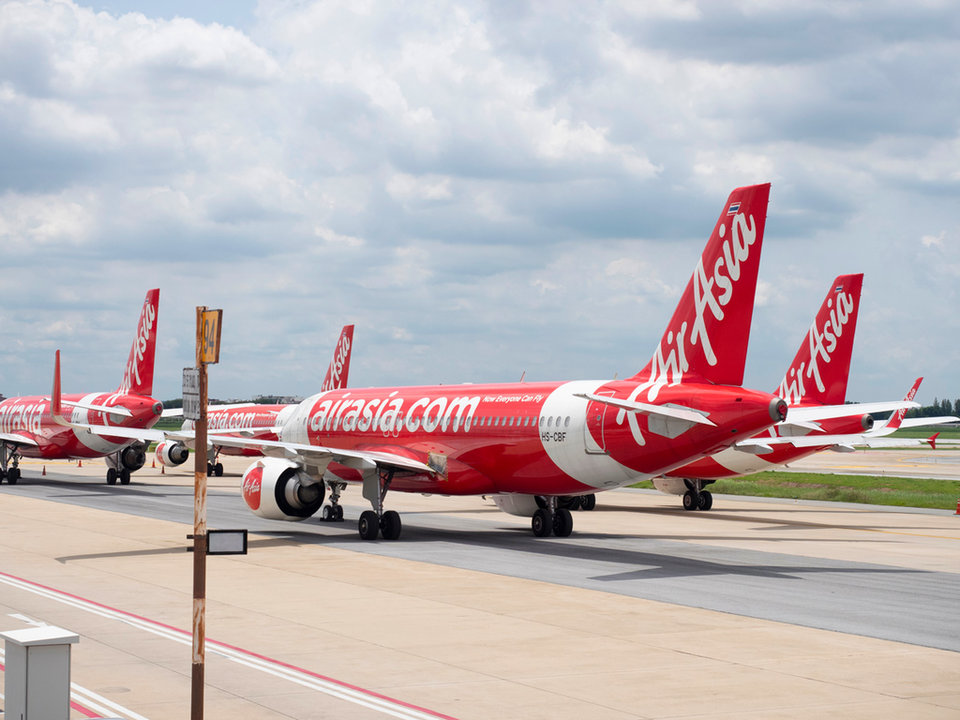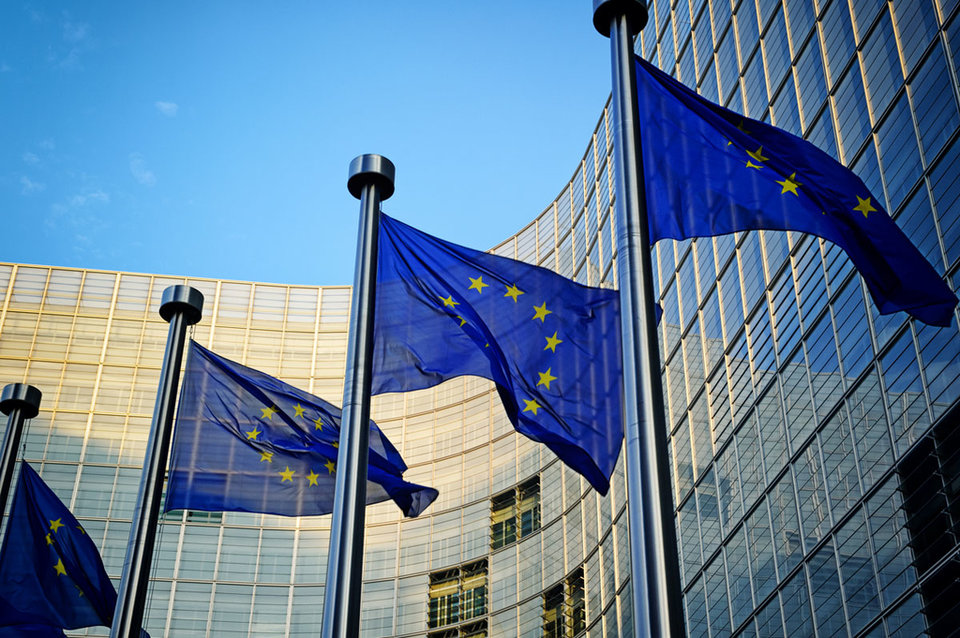Finances
Covid-19 and airline refunds:
does the system need to change?
Airlines in the EU are facing mounting criticism for their handling of refunds during the coronavirus pandemic. With the industry said to owe local passengers some €24bn for cancelled flights, should there be more clarity and standardisation over the way refunds are dealt with in the future? Adele Berti finds out.
National and international travel is slowly returning in Europe after long months of border closures and quiet skies. Airlines across the continent and beyond are gearing up for a long-awaited reintroduction of flights and a much-needed boost in traffic and revenues, both of which saw a vertiginous drop between March and June.
Yet as frontiers reopen, the European airline sector has a lot to make up for after its much-criticised management of flight refunds during the pandemic. Stories of frustrated passengers and their months-long struggles to get their money back from cancelled flights were an ordinary recurrence during lockdowns in the EU, as well as in many other areas in the world.
Regular flights may be back now, though the issue looks far from solved, as the number of unaddressed cases remains high. With its reputation increasingly on the line and a desperate need to secure cash, the industry is now campaigning for a change in regulation that could help save it from financial collapse.
Image:
No cash for refunds
Between wildfires in Australia, long-standing pressures to reduce carbon emissions and the coronavirus pandemic, 2020 is likely to go down in history as one of the most catastrophic years for airlines all over the world.
The virus has virtually wiped out a decade of solid profits for the sector, which had managed so well to recover from the 9/11 terrorist attacks and the 2008 Great Recession. Recent figures from global representative body the International Air Transport Association (IATA) forecast aviation to post the biggest losses of its history, estimated at $84bn in 2020 and nearly $16bn in 2021.
During the pandemic, travel bans throughout the EU left airlines with no alternative but to ground their aircraft and cancel hundreds of flights. According to analysis from delay compensations expert Flight-Delayed, 66.6% of global flights were cancelled between April and May, while in Europe the figure reached 90.4%.

Image:
Aircraft worldwide were grounded during the Covid-19 pandemic. Image: Purd77 / Shutterstock.com
“This number is even more stunning because it only regards the top ten European airlines, which owe passengers a total of €24bn worth of refunds,” says Wouter Fluitman, head of marketing at Flight-Delayed parent company Yource. “That means that almost 150 million passengers were affected by the crisis and had to deal with suppressed flights.”
According to Christian Nielsen, chief legal officer at German passenger rights company AirHelp, the situation escalated when airlines decided to only offer vouchers as compensation for the cancelled flight. “Issuing vouchers instead of refunds offers [airlines] a way to deal with the difficult financial situation many are left in, allowing them to retain customers’ money in their account,” he adds. “The issue is that many of their customers face similar dire financial situations and they were not being given a choice to have their much-needed money refunded.”
By March, the issue had reached such a magnitude that Flight-Delayed decided to specialise in refunds. “We saw a huge increase in website traffic and people asked for consultation on what to do with refund claims because they only got offered vouchers,” says Fluitman. “So we [decided] to provide an additional service on how to get a refund for their cancelled flights due to coronavirus.”
Issuing vouchers instead of refunds offers [airlines] a way to deal with the difficult financial situation many are left in
Regulating passenger rights worldwide
One reason why passengers used companies like AirHelp and Flight-Delayed to claim their money back is that there is little clarity on what they and airlines are entitled to in these situations.
Guidelines and regulations vary not only from airline to airline but also geographically. In the EU, airlines’ terms and conditions must follow directives outlined by the European Commission’s EC 261 Air Passenger Rights Regulation, in place since 2005.
“EC 261 is a powerful tool that was put in place to protect passengers in case of flight disruptions caused by the airlines but also extraordinary circumstances, like Covid-19,” says Nielsen. “[It] clearly states that passengers are entitled to a refund in this situation and that airlines are required to inform passengers about their rights.”

Outside the EU and UK, he says that “the airline must offer passengers the option to have their ticket reimbursed, as the paid-for service was not delivered”.
This has been the case in the US, where the Department of Transportation recently lobbied for the introduction of a ‘Cash Refunds for Coronavirus Cancellations Act of 2020’.
“This bill was designed to be retroactive and cover all passengers whose flights were cancelled during or after March,” Nielsen continues. “If passed, it would require airlines to make cash refunds available until 180 days after the end of the Covid-19 emergency.”
According to Australian newspaper The New Daily, the situation is different in Australia, where individual airlines are allowed to choose whether to offer vouchers or refunds. Meanwhile in India, the local Ministry of Civil Aviation ruled in April that passengers who had been grounded between the end of March and early May were entitled to apply for a refund, though little protection was offered to flights scheduled for later in the year.
EC 261 is a powerful tool that was put in place to protect passengers in case of flight disruptions
The issue with enforcement
Despite the EC’s guidelines, in the early days of the pandemic, many airlines announced they would only issue vouchers instead of refunds, enraging thousands of passengers. In a bid to provide more clarity on the debate, the Commission published an updated version of its EC 261 regulation in May.
According to Nielsen, this “suggested that airlines should make their vouchers as attractive as possible for their customers (for example by offering additional services)” to encourage passengers to accept vouchers. On the other hand, it also “reaffirmed that the choice between a refund or a voucher must remain the passenger's decision”.
Yet according to Fluitman, the response from local governments was mixed and inconsistent, so refund claims were handled in different ways depending on individual states. Some of them, like the Netherlands, even went against the EC’s ruling and backed their national airlines.
“The EU's response to the crisis has been consistent,” adds Nielsen. “Unfortunately, national governments have not reacted so consistently to this breach of EU law. [...] Many governments granted airlines with financial help too - meaning passengers are effectively footing the airlines' bills via their taxes.”
Months later, airlines have now started to gradually change their policies to be more in line with the Commission’s recommendations. “We now see some airlines actually making it easier to claim refunds,” says Fluitman. “However, companies like KLM-Air France are only offering refunds for flights that were cancelled after 16 May [so after the EC’s updates], leaving thousands of passengers in the cold.”
We now see some airlines actually making it easier to claim refunds
EU airlines call for change
On the other side of the debate, airlines have been voicing their frustration since the start of the pandemic. In particular, a joint press release from IATA, Airlines for Europe and other associations recently hit out at the Commission’s “lack of leadership” and “unclear and non-binding recommendations” when it comes to regulating passenger rights.
The group is also currently calling for an amendment of EC 261 that would allow airlines to issue refundable vouchers or delayed reimbursements instead of traditional refunds.
“We don’t understand why the Commission has disregarded the recommendations from the majority of the member states that have made it clear that connectivity, competition and consumer choice in Europe must continue,” said Montserrat Barriga, director general of the European Regions Airline Association in a press release. “Amending EC 261 is key to surviving this catastrophic situation that will otherwise ultimately damage the consumer and lead to higher prices and fewer routes.”
Yet passenger rights companies like AirHelp are determined to prove them wrong. “Airline lobbying groups regularly seek to undermine the regulation,” says Nielsen, pointing that airlines have often failed to abide by EU law. “Our studies have shown that airlines wrongfully reject, on average, 58% of the compensation claims they should be paying for in terms of avoidable long delays and cancellations. That’s why only the effective enforcement of EC 261 can improve passenger protection and prevent the repetition of this kind of situation in the future.”
Airline lobbying groups regularly seek to undermine the regulation
What lessons can be learned?
Looking back at the first six months of the year, the airline sector will have a lot to learn from the way it handled the Covid-19 crisis.
According to Nielsen, changes will have to be made to the way member states deal with their local airlines, whose scepticism towards EC 261 will also need addressing. “An independent study shows that EC 261 improved the punctuality of airlines by 5%,” he says. “Without EC 261, the EU would suffer from 80,000 more flight delays every year.”

EU flags in front of the European Commission building in Brussels, Belgium.
As Fluitman explains, this becomes even clearer when considering that regulated countries, such as EU member states, tend to fare far better than those that don’t have solid regulation. “If you look at the US market where you don't have certain regulations and don't get compensated after a delay of more than three hours,” he says, “then you can see that the percentage of delays of more than three hours is much higher than in Europe where the industry is regulated.”
The lack of clarity on how passengers can get refunds will also have to be addressed. “I think it shouldn't be this hard to have a refund, which should be a clear option,” he continues. “Most requests aren’t really clear about wanting a refund and they should just have a button on their website that processes it for you.”
“If there’s one thing that the crisis has shown, it is that strong passenger rights and effective execution are needed now more than ever to ensure that airlines treat passengers fairly in combating the pandemic,” concludes Nielsen. “Given the scale of the crisis, passengers who are seeking a refund must be prepared for difficulties like long processing times, and overloaded call centres. However, the increased workload does not release airlines from their duty to reimburse passengers who want their ticket refunded.”
Strong passenger rights and effective execution are needed now more than ever to ensure that airlines treat passengers fairly